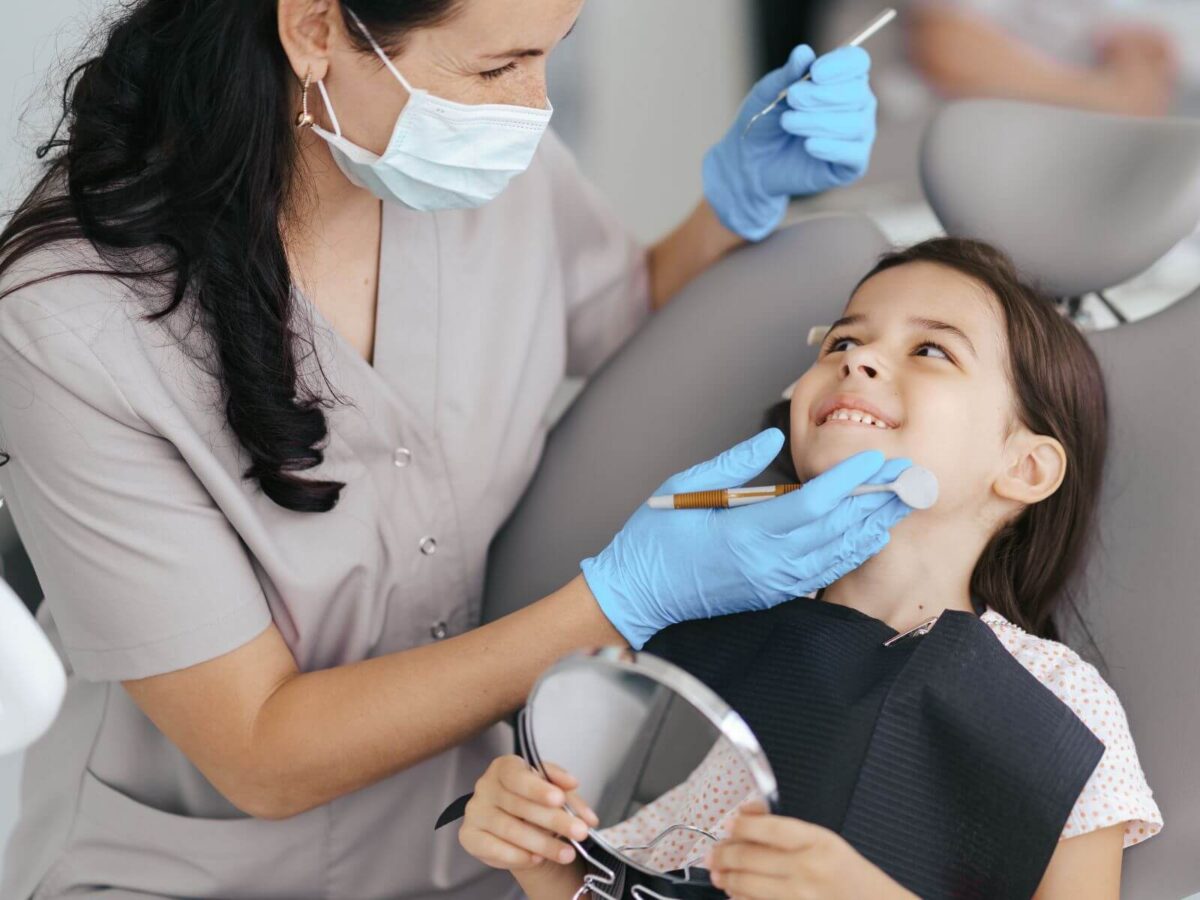Blog
Dental hygiene tips for healthy teeth & gums

6 Tips To Keep Your Child’s Teeth Clean And Healthy
Your child’s health depends on dental care. Oral hygiene habits started early will maintain healthy and white teeth for longer. Keeping your child’s teeth clean and cavity-free might be challenging, but following the recommendations by Azle Pediatric Dentist will help.
This article gives you six simple tips on how to keep your child’s teeth clean.
Start Going to the Doctor Early
You should always brush your child’s teeth, no matter how young they are. Before they even get their first tooth, they start going to the doctor. For babies, a wet cloth can be used to gently clean their gums.
It will keep their teeth healthy before they eat. Start brushing as soon as the first tooth comes in. Use a small toothbrush with soft brushes and about the size of a grain of rice for toothpaste.
This aids in the removal of food particles and prevents plaque accumulation, which can lead to cavities in young children. If you wipe your baby’s gums often and brush their teeth as soon as they come in, they will have good oral health for life.
Use the Right Method to Brush Twice a Day
Azle Pediatric Dentist suggests that children should brush their teeth at least twice a day to keep them healthy. Your brushing technique is as important as your frequency. Here’s the right way to help your kid brush their teeth:
- Always get your child a soft-bristled toothbrush that is right for their age. That way, you can keep your lips and teeth healthy.
- Kids might not be able to brush their teeth until they are 7 or 8 years old. Parents should make sure their kids brush their teeth the right way.
- Use a little fluoride toothpaste (about the size of a rice grain) on kids smaller than three. For kids ages 3 to 6, a bit about the size of a pea is enough.
- Show your child how to brush by moving the toothbrush in small circles and touching the chewing, front, and rear surfaces. Play a song for more fun.
Floss Regularly to Remove Plaque
Dental hygiene depends on flossing just as much as brushing. Brushing by itself cannot remove food between teeth and plaque. But flossing can help. Without flossing, you risk cavities and gum disease. These tips will help you teach your child to floss:
- Teach flossing while front teeth are close together. This ensures they get used to the sensation early on and understand its importance.
- If your youngster struggles with dental floss, try floss picks. These are simpler for youngsters but still work like brushing.
Watch your child floss. Until they are about 8 to 10 years old, they will need help flossing just like they do when they brush their teeth. - Encourage children to floss daily, preferably before bedtime, to remove food particles from between their teeth.
Limit Sugary Foods and Drinks
What your child eats and drinks can have a major impact on their teeth. Too many sugary drinks and foods can damage your teeth because they feed bacteria in your mouth. These bacteria make acids that are harmful to tooth enamel.
It’s not possible to keep your child from eating any sugar, but limiting sugary treats and pushing them to eat healthier foods is important for keeping their teeth healthy. Try to let them eat less candy, cookies, and drinks as snacks.
Sweets that stick to teeth and cause cavities are especially bad. Help your kids choose healthier options, give them fresh fruits, veggies, and cheese. These are healthy and help keep their teeth clean by making them salivate, which neutralizes mouth acids.
Soda, fruit juices, and sweet milk are all drinks with a lot of sugar that can damage their teeth. Instead, Azle Pediatric Dentist suggests that you should tell your child to drink water or normal milk, especially in between meals.
Take Your Child to the Dentist Regularly
You should take your child to the dentist frequently to maintain good oral health. In addition to identifying any problems with your teeth, a dentist can also provide advice on how to maintain good oral hygiene at home, including the proper technique to brush and floss.
The first time your child visits the Azle Pediatric Dentist should be when he or she gets their first tooth or celebrates their birthday. Regular dental appointments are necessary for the following reasons
- It may avoid dental phobia in the future.
- Early intervention helps to prevent major dental issues.
- Early medical visits enable children to acquire good oral hygiene.
- Dentists applying sealants or fluoride will help to prevent children’s cavities.
- The dentist can check your child’s teeth development and alignment at routine visits.
Encourage Good Dental Habits with Fun Tools
To encourage regular pediatric dental care, make it exciting for your child. Many interesting approaches exist to educate kids on good habits when brushing and flossing:
- Get your child a fun toothbrush. Let them choose one with their favorite cartoon figure on it or one that lights up. These little bonuses can make brushing more fun.
- Many apps and toothbrushes come with built-in clocks to ensure your child brushes for the full two minutes. Some apps let kids brush their teeth while listening to music.
Conclusion
Start early to ensure your youngster brushes their teeth and sees the Azle Pediatric Dentist. Starting dental care early, teaching your child how to brush, and avoiding sugary foods will help keep their teeth clean for life. Be involved and watch after your child to ensure healthy teeth now and in the future.


